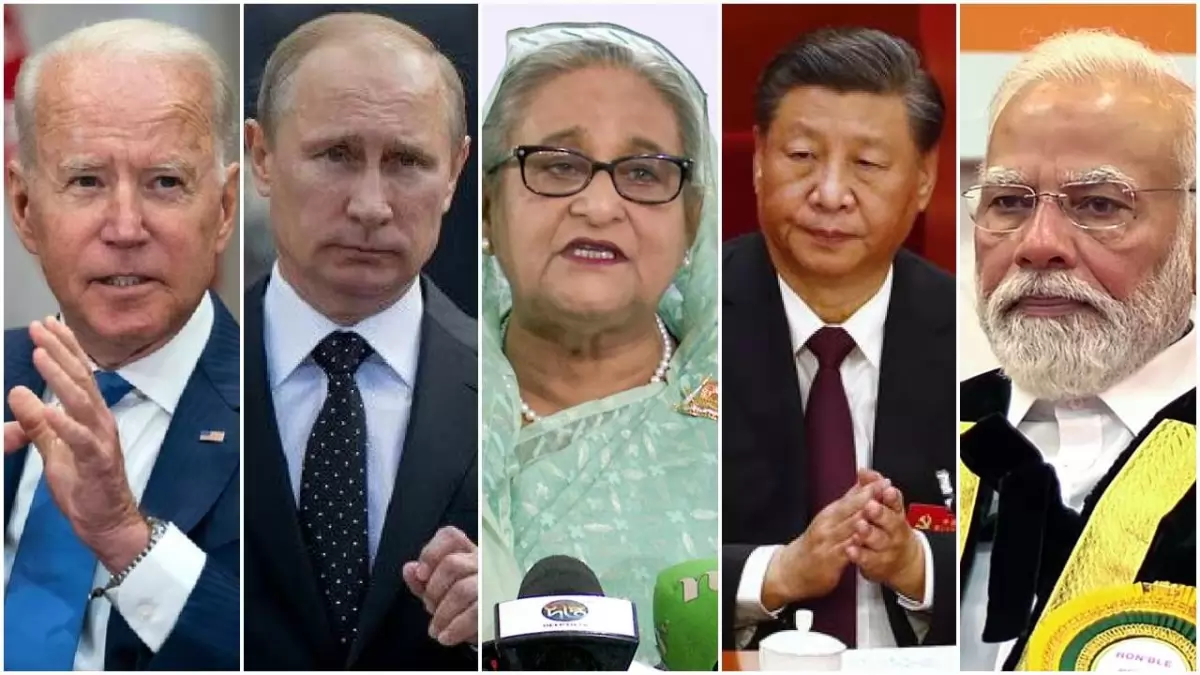
ANI
New Delhi: In a country of 17 crores, Bangladesh, the stage is set for general elections, with Prime Minister Sheikh Hasina vying for an unprecedented fourth term. However, the Bangladesh Nationalist Party (BNP) which is the main opposition, has declared a boycott, setting the scene for a contentious battle. The international community, including India, China, Russia, and the United States, closely watches these elections, given Bangladesh's struggle with political unrest and violence.
India's interest in the Bangladesh elections has grown from a history of cooperation in security matters. Since 1996 and consistently since 2009, Bangladesh's security agencies have collaborated with India, especially under Sheikh Hasina's government. The Awami League, led by Hasina, has actively worked to suppress anti-India activities within its borders. The election's outcome is definitely going to impact India-Bangladesh relations significantly.
India and Bangladesh share deep-rooted ties, with Prime Minister Sheikh Hasina acknowledging India's monumental contribution to Bangladesh's independence. Cooperation extends beyond security, with Bangladesh playing a crucial role in India's 'Look East' and 'Act East' policies. The two nations are not just neighbours; they are strategic partners with common diplomatic interests.
The United States is closely monitoring the elections. They have often accusing Sheikh Hasina's government of corruption and democratic suppression. The U.S. has supported the main opposition BNP and criticized Hasina's administration. Recent reports suggest the U.S. Embassy in Dhaka actively sought land for the opposition and applied pressure on Hasina since December 2021.
Bangladesh holds a significant position in the Indo-Pacific, aligning with America's efforts to counter China's influence. However, America is wary of Bangladesh's participation in China's Belt and Road Initiative (BRI). As China strengthens its ties with Bangladesh through infrastructure projects and financial support, the U.S. aims to maintain its influence in the region.
Russia's interest in the Bangladesh elections is notable, with Foreign Minister Sergei Lavrov's visit coinciding with U.S. pressure on the government. Amid America's inclination towards regime change in certain countries, Russia appears to align itself with Bangladesh's ruling government, opposing U.S. interference.
Russia's increasing proximity to Bangladesh is also linked to the supply of uranium. Russia has been providing uranium, and Bangladesh's first nuclear power plant, Rooppur, is under construction with Russian assistance. This strategic partnership is solidified by a substantial loan from Russia.
Bangladesh's geographical location, with the Bay of Bengal to the south, adds to its strategic significance. The Bay of Bengal serves as a vital maritime route connecting China, Japan, Korea, the Middle East, and Africa. In the era of heightened sea-politics, Bangladesh's strategic location in the Bay of Bengal becomes a key factor in global geopolitics.
Prime Minister Sheikh Hasina envisions transforming Bangladesh into a smart nation by 2041. With promises to generate 1.5 crore jobs for the youth by 2030, the Awami League aims to prioritise technology, modern healthcare, and overall development.
As Bangladesh conducts elections amid promises, opposition boycotts, and reports of potential unrest, the global community keenly observes the unfolding political and geopolitical implications. The results will undoubtedly shape the future landscape of politics and alliances in this pivotal South Asian nation.





Copyright © 2026 Top Indian News
